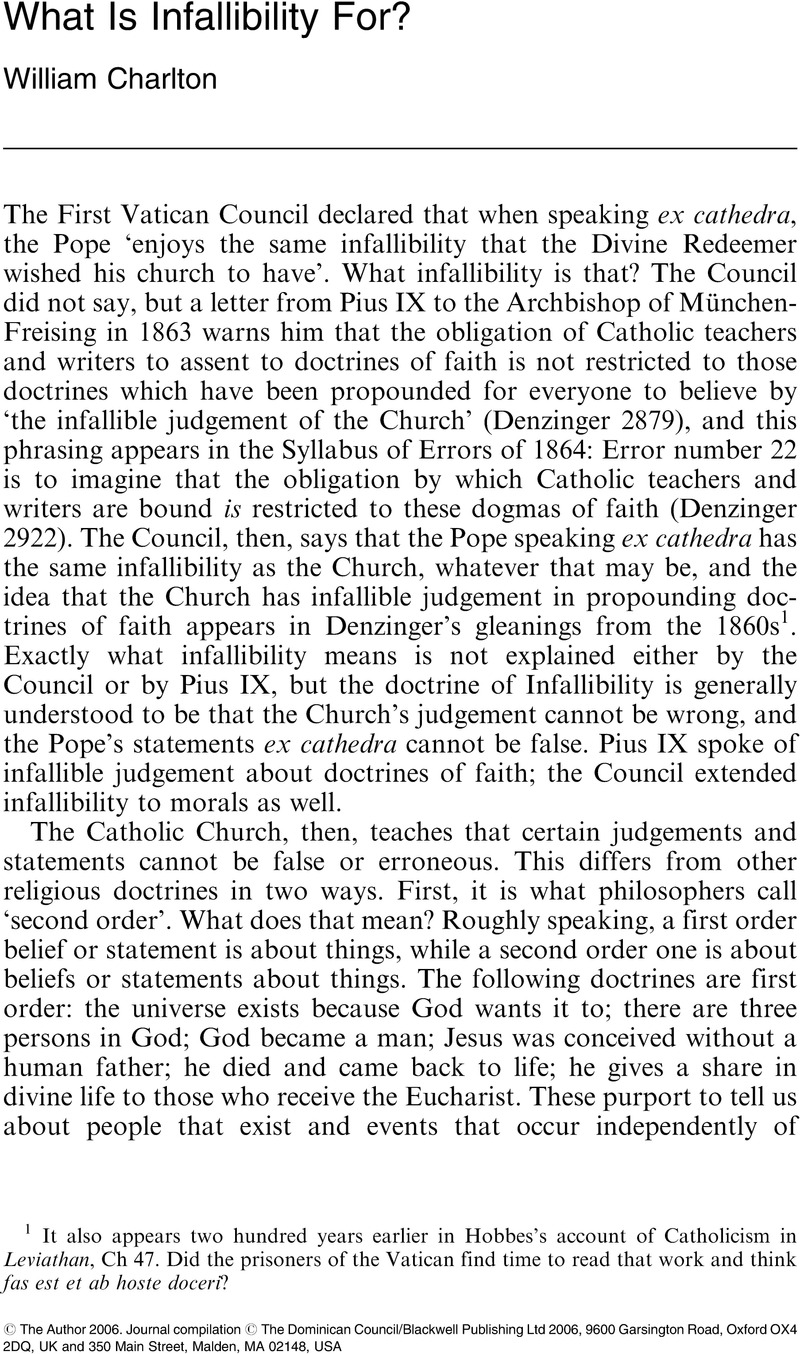No CrossRef data available.
Published online by Cambridge University Press: 01 January 2024

1 It also appears two hundred years earlier in Hobbes's account of Catholicism in Leviathan, Ch 47. Did the prisoners of the Vatican find time to read that work and think fas est et ab hoste doceri?